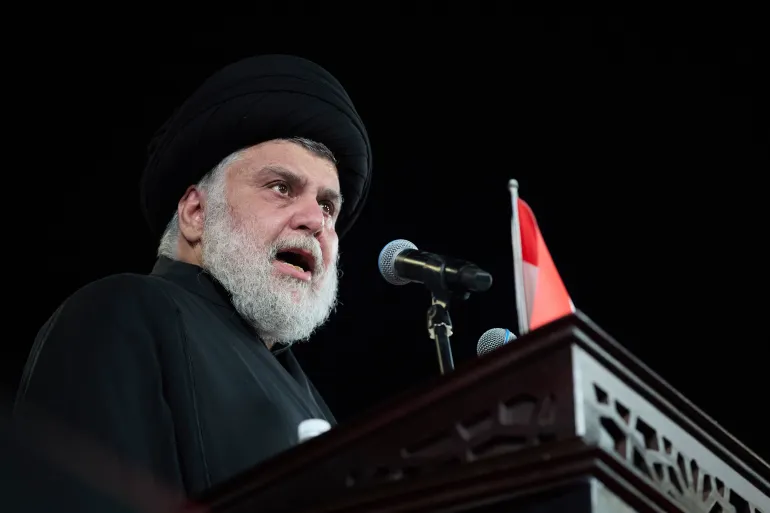Iraqi Shia leader Muqtada al-Sadr appears to be orchestrating a calculated pause in his decades-long pursuit of political dominance — a tactical retreat designed to prepare for an eventual and more decisive comeback.
In a statement last month, al-Sadr declared that his movement would boycott the upcoming November elections, saying he sought to “change the faces and save Iraq.” But sources close to his camp suggest this is not an end, but rather a strategic delay aimed at reclaiming power on his own terms.
Al-Sadr, who withdrew his bloc from parliament in 2022, has long positioned himself as an outsider to Iraq’s entrenched political elite, leveraging populist rhetoric to galvanize support among the poor and disillusioned.
His main rivals, the Shia Coordination Framework (SCF) — an alliance of Iran-backed parties — filled the vacuum after his withdrawal, taking control of parliament. In recent remarks, al-Sadr accused the SCF of orchestrating rocket attacks against his allies.
Analysts argue that al-Sadr’s exit from politics was less about withdrawal and more about timing. He seems to be waiting for his rivals’ governance to fail, allowing his movement to emerge as the only credible force capable of “saving Iraq.”
According to a source close to him, al-Sadr had briefly considered rejoining the elections after pressure from key Sadrists worried about losing influence within state institutions, but those efforts reportedly collapsed behind closed doors.
For now, al-Sadr remains in strategic silence, but Iraq’s turbulent politics — rife with corruption, instability, and factionalism — may soon draw him back into the fray.
Observers say the cleric’s endgame is clear: to dismantle the system from outside, only to return and rebuild it under his authority.



